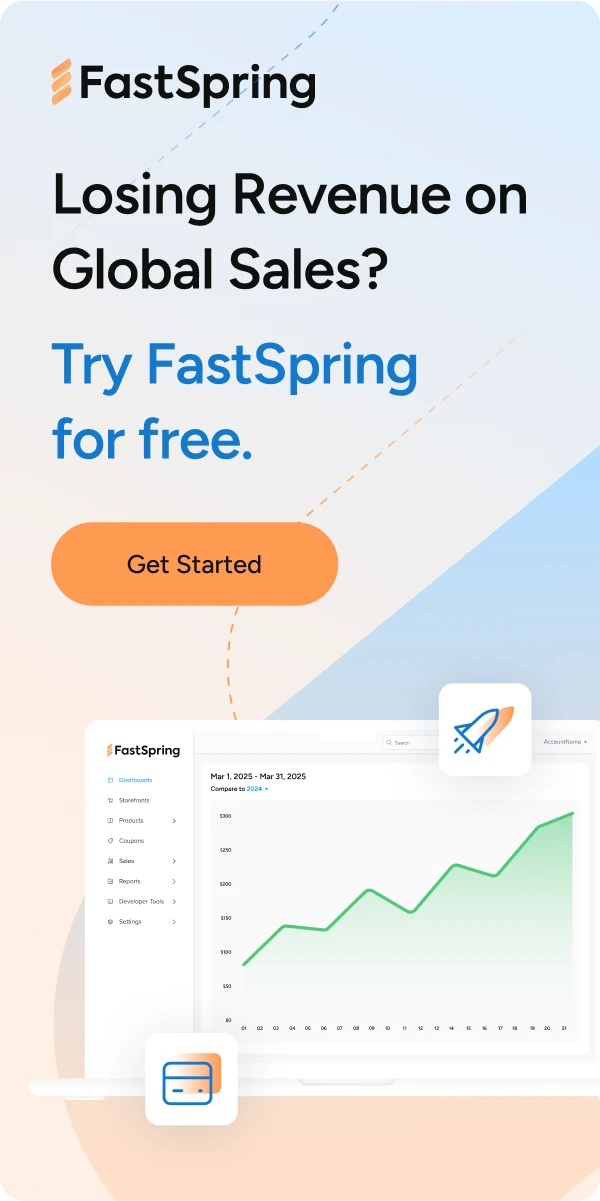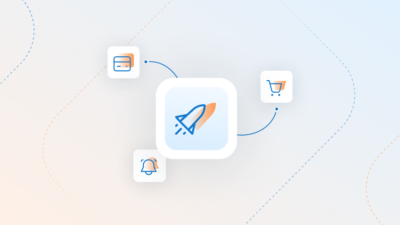If you’ve never heard of B2B before, then the term can leave you scratching your head and wondering, “What is B2B sales?” The great news is there’s an answer, and it doesn’t even require a degree in astrophysics.
B2B is shorthand for “business to business sales.” Though it used to be referred to as B to B sales, sometime in the late 90’s “to” was replaced by “2” by someone who we can only guess was an awfully busy person.
Unlike B2C, which is business to consumer sales, B2B sales focus on selling to businesses, not individual consumers.
Think of it this way. A company that sells bananas to individual customers is an example of B2C sales. However, a company that sells their bananas to a grocery chain who then sells their bananas to individual consumers is an “a-peel-ing” example of B2B sales.
Even though there are plenty of small B2B business sales out there, they are usually significantly higher in value than B2C since businesses have bigger budgets than individual consumers.
B2B selling can be much more challenging in many ways since companies are trying to sell to professionals who are typically much more challenging to pitch a sale to than an average consumer. B2B sales aren’t only typically higher in value than B2C sales, but often much more complex.
When you look at a product itself, you may only see the brand. Take your computer, for example. You might assume that since there’s an Apple logo on it that it was designed and manufactured entirely by Apple, but that’s far from reality. The truth is that you’re looking at dozens of different company products that have been assembled together to make your computer as you know it.
In fact, Apple alone relies on more than 200 B2B suppliers for procuring everything they need to assemble their products.
Types of B2B Companies
If you look around, you’ll find B2B companies in just about every industry and they come in all sizes from small to medium businesses (SMB), all the way up to enterprise. Whatever it is that you’re after, it’s highly likely that there are already active B2B suppliers selling it. Let’s take a look at the different kinds of business to business selling.
Service-Based B2B
B2B service-based businesses provide services to other businesses specific to their industry that don’t necessarily require a brick and mortar store or office. In many cases, all of their business is done entirely online. A few examples of service-based B2B businesses could be:
- Accounting / Bookkeeping
- Graphic Design
- SEO / Marketing
- Consulting
Software Sales
Many businesses would rather spend their time focusing on developing their products and services rather than bothering anything else. That’s where B2B software companies step in.
Specifically targeted software helps businesses get certain tasks done without having to do it themselves or rely on a provider. For example, FastSpring makes easy-to-use checkout software for businesses so they can prioritize their time making software and zero time worrying about creating their own ecommerce platform.
Wholesale Sales
A wholesaler sells to businesses who need different components to sell their products, and it’s a pretty booming business.
B2C retail is an estimated $5.35 trillion industry, while U.S. wholesale sits at a whopping $8.3 trillion.
Why is this subset of B2B known as B2B wholesale such a multi-trillion-dollar industry? Because these companies typically sell to major chains that are well-known and loved by consumers. Unlike consumers, big-name superstores buy significant volumes on a regular basis. Think Costco, Walmart, Office Depot, or IKEA.
Cha-ching!
Supply Sales
Suppliers, as the name suggests, provide supplies for a business to run. Usually, these are items like office supplies or work gear. In a B2C supplier scenario, a single customer would walk into a store, buy a pencil, and go on their merry way. In a B2B setting, an employee buys potentially thousands of pencils and gives them out to their team.
Not only is the transaction much higher in value, but also the complexity of it. All business purchases must be approved before going through, which requires time and paperwork.
How To Succeed at B2B
Now that you’ve got an idea of what kinds of different B2B sales are out there, and how lucrative it is, it’s helpful to know how to excel at it.
Let’s go over some of the best strategies for a successful B2B business.
Know Your Customer
Before you pick up the phone and start calling leads right away, you must do your research first. Think of yourself as a hunter. A skilled hunter never plunges too early. They poise themselves before going in for the kill.
Get to know what makes your leads tick, from their pain points to their company goals. By following your leads carefully through social media and scanning their websites, you’ll know the best angle to approach them with.
You’ll also give yourself a lot more credibility if you approach your customer with a comprehensive understanding of their company. Demonstrating that you know how their business works makes it easier to convince them how your product or service can benefit them.
Show an Interest
Nothing is more aggravating than a long-winded sales rep who won’t let you get in a word in edgewise. Please don’t be that guy. Instead of being overly-chatty, prioritize listening over talking.
Engage in a meaningful conversation that elicits genuine conversation. That means asking questions about their needs and concerns for their business and avoiding closed questions when you can. Prompt your leads to answer with a detailed answer by using the guide below.
When the time is right, then you can offer your company as a solution.
Build Relationships
Many companies make the error of believing that closing a sale is the paramount objective of a phone call or meeting. But, this is exactly where many B2B companies go wrong. It’s more important to build a relationship with your leads. Being too pushy can rub people the wrong way, particularly when you’re trying to pitch a business rep over an everyday consumer.
Remember, just like that old tortoise and the hare, slow and steady wins the race. If your customers are hesitant about your product, give them time to think about it. Instead of trying to get them to buy today, offer a free demo and a call back instead.
Tip: Make sure that your sales development reps (SDR) save all of your leads’ and customers’ data with CRM software, like Salesforce, so that the next person who reaches out doesn’t have to ask the same questions twice.
Follow a Sales Process
There’s no one way to succeed with B2B sales. It all depends on your product or service and your ideal customer profile. From lead generation to free trial, and eventually closed-won deals, there are many processes and tools you can use to ensure you keep track of the entire sales cycle.
Is B2B Right For You?
B2B is undoubtedly a lucrative world to break into. However, B2B buyers aren’t always an easy sale. Beyond influencing the person you’re talking to, you’ll also need to earn the approval of all of the decision-makers above them. Rarely is it a simple yes, but rather several approvals up a corporate hierarchy.
However, if you can keep up and adapt to the ever-changing world of B2B, then you just might have what it takes to dominate this profitable industry.









